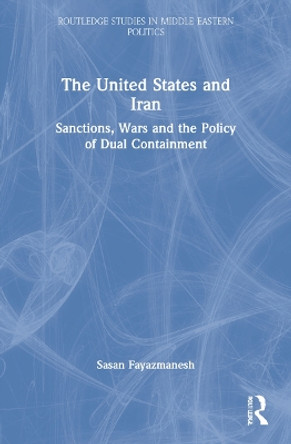Description
The economic sanctions imposed on Iraq from 1990 to 2003 were the most comprehensive and devastating of any established in the name of international governance. The sanctions, coupled with the bombing campaign of 1991, brought about the near collapse of Iraq's infrastructure and profoundly compromised basic conditions necessary to sustain life.
In a sharp indictment of U.S. policy, Joy Gordon examines the key role the nation played in shaping the sanctions, whose harsh strictures resulted in part from U.S. definitions of "dual use" and "weapons of mass destruction," and claims that everything from water pipes to laundry detergent to child vaccines could produce weapons. Drawing on internal UN documents, confidential minutes of closed meetings, and interviews with foreign diplomats and U.S. officials, Gordon details how the United States not only prevented critical humanitarian goods from entering Iraq but also undermined attempts at reform; unilaterally overrode the UN weapons inspectors; and manipulated votes in the Security Council. In every political, legal, and bureaucratic domain, the deliberate policies of the United States ensured the continuation of Iraq's catastrophic condition.
Provocative and sure to stir debate, this book lays bare the damage that can be done by unchecked power in our institutions of international governance.
In one of the bitter ironies of our time, the UN Security Council--under the influence of the United States--destroyed a country in order to save it from its leader. In vividly portraying and thoroughly documenting the history of the Western decapitation of Iraq through economic sanctions Joy Gordon fills a huge gap in the literature. Her penetrating research reveals the purposefulness of punishment, complicity, rationalization, and outright deception as standard practice in the role played by the United States, which lacked critical self-reflection and any clear sense of rules or the relationship between means and ends. This book will become a foreign affairs classic. -- George A. Lopez, author of The Sanctions Decade In a powerful, original book, Gordon offers the most sophisticated and comprehensive analysis of the origins, administration, and impact of the Iraq sanctions regime. This is a damning account of how international administration was used by the U.S. and the UK for policy ends. Despite the rhetoric of humanitarianism, the sanctions were, in Gordon's term, a humanitarian catastrophe. -- Neta C. Crawford, Boston University For a decade, Gordon has scoured UN and U.S. documents, interviewing officials of all ranks in her attempt to understand the engine rooms of the Iraq sanctions. The result is one of the most extensively researched books on the sanctions, a detailed account of how U.S. officials and diplomats brought about one of the 1990s' worst humanitarian crises. -- Colin Rowat, University of Birmingham This profoundly troubling story about U.S. foreign policy under three administrations reveals the shameful manner in which the United States relentlessly subverted the UN sanctions regime for Iraq, twisting it toward a purpose not approved by the Security Council. It is time Americans knew of the cruelty inflicted on Iraqis in our name behind closed doors at the UN in one of the morally most disastrous foreign policy decisions in American history. Gordon has documented it, calmly, courageously, meticulously, and convincingly. -- Henry Shue, University of Oxford, author of Basic Rights Gordon dissects U.S. policies and practices in forensic detail. It is a chilling, and telling, tale of how a complex and sophisticated bureaucracy, given an overriding security remit, could be content not merely to allow a humanitarian tragedy to take place but indeed to help to create it, not by active malevolence but through indifference. -- Sir Harold Walker, former British Ambassador to Iraq A superb critique of the U.S.-led sanctions against Iraq, which were imposed for twelve years, with disastrous humanitarian consequences for the civilian population. This wonderfully researched and written book has profound implications for ongoing assessments of American foreign policy, and deserves to be widely read, its argument absorbed at the highest levels of government. -- Richard Falk, Princeton University, emeritus Sanctions are frequently cast as a humane alternative to war. But in practice sanctions are often politically ineffective blunt instruments that do not conform to the moral principles of discrimination and proportionality. Gordon gives us the Iraq case in all its complexity, showing how international institutions became entangled in an area where the goalposts were moved in mid-game. Many of the weakest, poorest, and most vulnerable paid the price. The continued use of sanctions in a variety of contexts poses many hard questions. This book provides an excellent place to start the questioning. -- Joel H. Rosenthal, President, Carnegie Council for Ethics in International Affairs
About the Author
Joy Gordon is Professor of Philosophy at Fairfield University.
Reviews
In one of the bitter ironies of our time, the UN Security Council--under the influence of the United States--destroyed a country in order to save it from its leader. In vividly portraying and thoroughly documenting the history of the Western decapitation of Iraq through economic sanctions Joy Gordon fills a huge gap in the literature. Her penetrating research reveals the purposefulness of punishment, complicity, rationalization, and outright deception as standard practice in the role played by the United States, which lacked critical self-reflection and any clear sense of rules or the relationship between means and ends. This book will become a foreign affairs classic. -- George A. Lopez, author of The Sanctions Decade
In a powerful, original book, Gordon offers the most sophisticated and comprehensive analysis of the origins, administration, and impact of the Iraq sanctions regime. This is a damning account of how international administration was used by the U.S. and the UK for policy ends. Despite the rhetoric of humanitarianism, the sanctions were, in Gordon's term, a humanitarian catastrophe. -- Neta C. Crawford, Boston University
For a decade, Gordon has scoured UN and U.S. documents, interviewing officials of all ranks in her attempt to understand the engine rooms of the Iraq sanctions. The result is one of the most extensively researched books on the sanctions, a detailed account of how U.S. officials and diplomats brought about one of the 1990s' worst humanitarian crises. -- Colin Rowat, University of Birmingham
This profoundly troubling story about U.S. foreign policy under three administrations reveals the shameful manner in which the United States relentlessly subverted the UN sanctions regime for Iraq, twisting it toward a purpose not approved by the Security Council. It is time Americans knew of the cruelty inflicted on Iraqis in our name behind closed doors at the UN in one of the morally most disastrous foreign policy decisions in American history. Gordon has documented it, calmly, courageously, meticulously, and convincingly. -- Henry Shue, University of Oxford, author of Basic Rights
Gordon dissects U.S. policies and practices in forensic detail. It is a chilling, and telling, tale of how a complex and sophisticated bureaucracy, given an overriding security remit, could be content not merely to allow a humanitarian tragedy to take place but indeed to help to create it, not by active malevolence but through indifference. -- Sir Harold Walker, former British Ambassador to Iraq
A superb critique of the U.S.-led sanctions against Iraq, which were imposed for twelve years, with disastrous humanitarian consequences for the civilian population. This wonderfully researched and written book has profound implications for ongoing assessments of American foreign policy, and deserves to be widely read, its argument absorbed at the highest levels of government. -- Richard Falk, Princeton University, emeritus
Sanctions are frequently cast as a humane alternative to war. But in practice sanctions are often politically ineffective blunt instruments that do not conform to the moral principles of discrimination and proportionality. Gordon gives us the Iraq case in all its complexity, showing how international institutions became entangled in an area where the goalposts were moved in mid-game. Many of the weakest, poorest, and most vulnerable paid the price. The continued use of sanctions in a variety of contexts poses many hard questions. This book provides an excellent place to start the questioning. -- Joel H. Rosenthal, President, Carnegie Council for Ethics in International Affairs
[An] excellent book. -- Andrew Cockburn * London Review of Books *
The devastation of much of Iraqi society between 1990 and 2003 through [UN economic] sanctions, driven by the U.S. and to a lesser extent the UK, is a story that has been buried for the most part under layer on layer of diplomatic technicalities, obfuscation and sheer indifference. Joy Gordon's important book not only sets out the story superbly well, but demonstrates its wider implications for our understanding of economic sanctions, international law and global governance. She shows that a commitment to scholarly rigor and a commitment to common humanity can be mutually reinforcing, and her book deserves to be read and discussed widely...Through careful, nuanced analysis Gordon argues persuasively that international law as it stands is ill-equipped to recognize, never mind prosecute and punish, the horrors that were inflicted through the institutions of global governance. -- Eric Herring * Times Higher Education *
With this book, Gordon, a philosophy professor at Fairfield University, merits membership in that university's history department as well. This is more than an ethical or legal treatise. It is a solid historical reconstruction of the sanctions imposed on Iraq from 1990 to 2003 and of the persistent U.S. leadership in this effort. Especially impressive is Gordon's combing of the sprawling U.S. and UN records over those 13 years. Her findings are somber. For example, she reports, most studies estimate that "at least 500,000 children under age five who died during the sanctions period would not have died under the Iraqi regime prior to sanctions." She also punctures holes in the argument that the Iraqi suffering was due to the abusive manipulation of the sanctions by the Saddam Hussein regime. She documents a consistent U.S. policy spanning the presidencies of George H. W. Bush, Bill Clinton, and George W. Bush that linked sanctions to regime change, thus eliminating any motivation for Saddam to comply. Moreover, the bureaucracy and the rules governing the sanctions not only gave the United States a virtual veto that not only blocked changes but assured their severely restrictive implementation. In 1995, then UN Secretary-General Boutros Boutros-Ghali described sanctions as a "blunt instrument." In the Iraqi case, as Invisible War starkly shows, sanctions can be not just blunt but also ineffective. -- L. Carl Brown * Foreign Affairs *
Joy Gordon has crafted a well researched and sobering story of the US-led failure of international governance in the case of the 13 years of sanctions on Iraq. The underlying argument made is that the UN Charter's mandate to achieve "health, education and economic development" was fatally compromised by a U.S. policy which was premised on "an ongoing commitment to regime change."...The book speaks with a genuine and well informed anger...Gordon's important book is a cautionary tale of what happens to a state when the full mechanisms of international sanctions are placed upon it regardless of consequence. Gordon admits that U.S. policy was not calculated to destroy the Iraqi population but rather was "deeply indifferent" to the consequences of its actions. Arguably much of the story of the post-2003 occupation is a legacy of such consequences. -- James Denselow * Huffington Post *
Gordon, in her meticulous study of the evidence, has produced a classic political-moral tract: the inside story of the U.N. economic sanctions against Iraq, from the invasion of Kuwait through three presidencies, when American obstructionism disregarded the sanctions' original purpose and reduced a once prosperous nation to a primitive state. -- Raymond A. Schroth * National Catholic Reporter *
While most Americans have largely forgotten the long decade of U.S. led sanctions on Iraq, Gordon forces attention back to their long-lasting effects on the Iraqi state and society. She offers a deeply researched account of American and United Nations policies towards the sanctions which captures the contradictions between an overt focus on forcing Saddam Hussein to surrender his WMD programs and a deeper interest in maintaining containment ("keeping Saddam in a box") and pushing for regime change--contradictions which remain deeply relevant to current debates about Iran. Gordon tracks the effects of the sanctions on Iraqis, which drove international outrage as the decade of the 1990s dragged on but which most of the world now seems eager to forget. -- Marc Lynch * Foreign Policy blog *
Awards
Nominated for Arthur Ross Book Award 2011 and Bancroft Prize 2011 and Lionel Gelber Prize 2011 and Stuart L. Bernath Book Prize 2011 and Woodrow Wilson Foundation Award 2011 and Robert Jervis and Paul Schroeder Best Book Award 2011 and William H. Riker Book Award 2011 and Edgar S. Furniss Book Award 2010 and Human Rights Best Book Award 2011 and J. David Greenstone Book Prize 2011 and Michael Harrington Award 2011.
Book Information
ISBN 9780674064089
Author Joy Gordon
Format Paperback
Page Count 376
Imprint Harvard University Press
Publisher Harvard University Press




